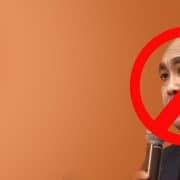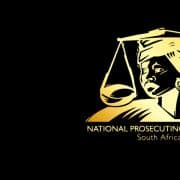|
Getting your Trinity Audio player ready...
|
Nine months after Mxolisi Nxasana resigned from his position, President Jacob Zuma says the former National Prosecuting Authority (NPA) head did what was best for South Africa by leaving his post. Nxasana resigned from the NPA abruptly last June amid controversy and while an inquiry into his fitness for office was under way.
Zuma was responding in an affidavit to the North Gauteng High Court case brought forward by Corruption Watch and Freedom Under law, who seek to have the R17-million given to Nxasana on his departure declared unlawful. Visit our page on the court case to read the affidavit and other documents.
In the document, Zuma maintains that it was Nxasana who expressed a willingness to leave office and not him who forced him out, as several analyses expressed in the media last year. “During… August 2013 to May 2015, Nxasana and I had various one-on-one verbal discussions regarding the discord that existed in the NPA, especially between Nxasana and the senior management,” reads Zuma’s submission.
“The discord was so pronounced, that the senior management was divided and the NPA was destabilised and haemorrhaging.” The inquiry into Nxasana’s fitness for office was a key factor in the discord, according to the court papers. “The inquiry offered some of the senior management an additional platform to question the authority of Nxasana.”
Zuma instituted the inquiry in 2014 when the Department of State Security denied Nxasana a security clearance. The department had revealed that Nxasana had been charged with – and later acquitted of – murder when he was 18 years old. The incident happened in Umlazi, KwaZulu-Natal, in 1985. At the time the news broke, Nxasana said he had not found it vital to disclose the matter upon his appointment as national director of public prosecutions (NDPP) as he had been acquitted for it. But, according to Zuma, this non-disclosure not only warranted the inquiry, but also contributed to the disharmony within the NPA during Nxasana’s tenure.
When first asked by then justice minister Jeff Radebe to resign, Nxasana had refused. Later, Radebe’s successor Michael Masutha engaged senior management of the NPA, according to his own submission to the court. “During the meeting I called for ceasation of hostilities, impressing on senior management to desist from attacking each other in the media,” reads the document.
The affidavit goes on to say it was Masutha who introduced the option of an inquiry to Zuma. “I…recommended to the President to initiate an inquiry into Mr Nxasana’s fitness to hold office based on the seriousness of the allegations against him.”
Zuma, however, says the reasons given by Nxasana for resigning as well as the possibility of a protracted litigation were sufficient for him to let Nxasana go: “It was plain to me that Nxasana was no longer willing to continue as the national director of public prosecutions and the only outstanding issue remained the financial aspects relating to his vacating his office.”
“Section 12(8) of the NPA Act provides that the NDPP may request to vacate his or her office for any reason which the president deems sufficient. Nxasana made the request to me to vacate his office,” said Zuma in the affidavit. He added that according to Nxasana, the discord that existed within the NPA at the time was because senior management did not share his strategic views, as well as the “disciplinary steps or criminal charges which he intended taking against certain of the senior managers.”
The negotiations over Nxasana’s settlement were extensive and eventually Minister of Justice Michael Masutha, the Treasury and Nxasana reached an agreement, resulting in the official parting of ways between the parties.
If the court were to find that the payment to Nxasana was unlawful, said Zuma, he intends to abide by the court’s decision.







